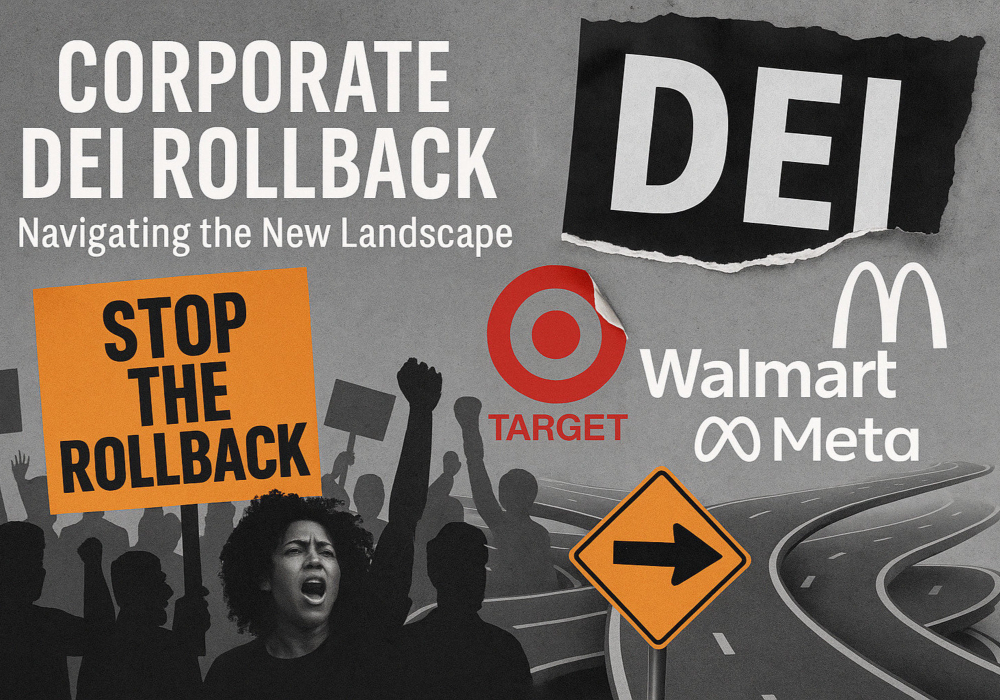As DEI programs face growing political backlash, Uber’s evolving stance offers a revealing case study. This article revisits a pivotal conversation with Tony West to explore what’s changed since 2021.
Five years ago, on May 25th, 2020, the murder of George Floyd ignited a global awakening about racial justice. Corporations made ambitious promises—many publicly committing to diversity, equity, and inclusion (DEI) in ways we had never witnessed before.
In 2021, I sat down with Tony West, Uber’s Senior Vice President and Chief Legal Officer, to discuss the company's commitment to diversity, equity, and inclusion (DEI). At the time, West emphasized Uber's dedication to fostering an inclusive workplace and supporting underrepresented communities. He spoke passionately about the company's initiatives to increase diversity within its workforce and leadership, and to ensure equitable treatment for all employees and riders.
Fast forward to 2025, and the landscape has shifted dramatically. Like many other major corporations, Uber has scaled back its DEI initiatives in response to changing political and social pressures. The company's 2024 annual report notably omitted the dedicated section on diversity and inclusion that was present in previous years, and the term "diversity" was absent from the 135-page document. Additionally, Uber eliminated DEI-related metrics from executive compensation packages, which previously linked performance-based awards to targets for increasing representation of women and underrepresented groups.
This rollback is not unique to Uber. Companies like Walmart and Target have also faced scrutiny and backlash over their DEI policies. Walmart announced it would not renew its five-year commitment to an equity and racial center and would cease considering supplier diversity, leading to criticism from shareholders and Democratic officials. On the other hand, Target faced boycotts and declining sales after scaling back its DEI initiatives, including ending its Racial Equity Action and Change program and withdrawing from diversity-focused surveys.
The political climate has played a significant role in these decisions. President Donald Trump's administration has taken a strong stance against DEI programs, with Executive Order 14151, titled "Ending Radical And Wasteful Government DEI Programs And Preferencing," signed on January 20, 2025. This order, along with the rescission of Executive Order 11246, which had prohibited federal contractors from engaging in employment discrimination, has led many companies to reevaluate their DEI commitments.
Despite these challenges, some companies have maintained their commitment to DEI. Apple, for instance, reaffirmed its dedication to DEI by rejecting a shareholder proposal to abolish its diversity and inclusion programs. The company's board argued that such programs are integral to creating a culture of belonging and enhancing innovation. Similarly, Delta Air Lines has continued to assert a strong commitment to DEI, with executives emphasizing that diversity and inclusion are critical to their business. JPMorgan Chase CEO Jamie Dimon has also reaffirmed the bank's support of DEI, stating that the bank will continue its outreach to underrepresented groups. Still, at what level have these commitments really been central to these organizations?
Uber, for its part, continues to uphold certain DEI initiatives. The company operates its Global Self-Identification (GSID) program, a voluntary initiative that collects demographic data to inform workplace equity strategies. Uber also supports Employee Resource Groups (ERGs) and participates in events like the European Women in Technology conference to promote inclusion within the tech industry.
A lighter moment from my 2021 conversation with Tony West, Uber’s Senior Vice President and Chief Legal Officer, where we connected over our shared experience living and working in Saudi Arabia. It was a brief pause in a much deeper discussion about corporate accountability and whether global brands are truly committed to promoting diversity, equity, and inclusion.
Reflecting on my conversation with Tony West, it's clear that the ideals and goals he championed are facing significant challenges. The question now is whether companies like Uber will find new ways to uphold their commitment to diversity and inclusion in this evolving landscape, or whether these values will be sidelined in favour of political expediency and economic considerations.
As we navigate this complex terrain, it's crucial to remember the importance of DEI initiatives in creating equitable workplaces and societies. The rollback of these programs not only affects employees and customers but also sends a broader message about a company's values and priorities. This conversation should remain active, with leaders like Tony West continuing to contribute to the evolving dialogue around equity and inclusion.







Comments powered by CComment